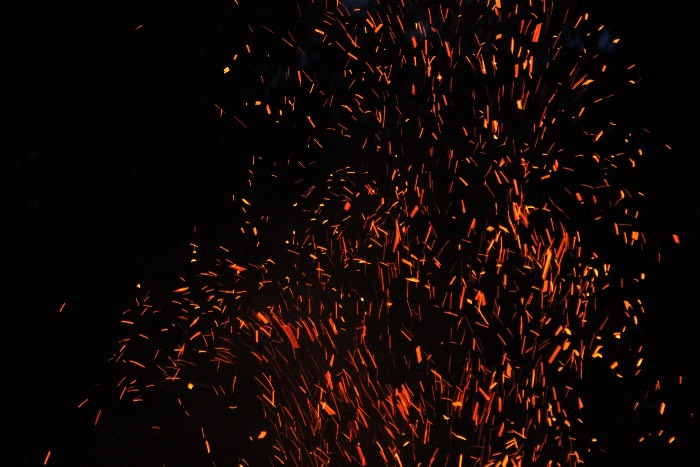In the parable of the Rich Man and Lazarus, we are given the chance to see, not what is fixed, but what can be changed.

For Sunday
Proper 21C
Collect
O God, you declare your almighty power chiefly in showing mercy and pity: Grant us the fullness of your grace, that we, running to obtain your promises, may become partakers of your heavenly treasure; through Jesus Christ our Lord, who lives and reigns with you and the Holy Spirit, one God, for ever and ever.
Amen.
Reading
From Luke 16:19-31
“He called out, “Father Abraham, have mercy on me, and send Lazarus to dip the tip of his finger in water and cool my tongue; for I am in agony in these flames.””
Reflection
Just moments earlier, Jesus told an extraordinarily vivid parable about a father and his two sons. Now, he is telling an even more vivid parable about two men who don’t even know each other, whose fates are intertwined by matters of life and death. And one of them, known only as a “rich man” is sent to live out the rest of eternity in Hades.
As vivid as this parable is, and it is extremely vivid, it fleshes out a profound image that Jesus is offering us. An image about how we live and relate to one another. And how we refuse to live and relate to one another.
n the telling, Jesus paints this portrait of two men divided by a great chasm. And the rich man is so thirsty, he’s like, somebody get me something to drink! and Abraham, his tour guide to Hades, is like, How’s that guy supposed to get over here to help you?
The chasm doesn’t only divide them literally or metaphorically. The rich man can’t even recognize the poor man’s humanity. He wants that guy to serve him still. Even now. The rich man can’t even conceive of his own folly.
The chasm that existed between the men in life continues in death.
For us, we could simply leave it there; mesmerized by the symmetry and balance of the disunity. But Jesus doesn’t depict the two as thematic equals. For it was only moments ago that Jesus said that “You cannot serve God and wealth.” And then the author wrote: “The Pharisees, who were lovers of money, heard all this, and they ridiculed him.”
The chasm doesn’t divide equally. Nor does it divide necessarily.
I suspect that, in the context of the parable the chasm exists in the afterlife because the rich man reinforced it in life. And that he is conscious of its benefits, while (perhaps intentionally and willfully) blind to its drawbacks.
Given all that Jesus has taught up to this point in the story, it is impossible for me to pretend this is anything but a critique of wealth. Not because of what it necessarily creates but because of what it continues to create.
At any time, the rich man could have ended the suffering Lazarus was enduring in life. He chose not to. Today’s richest people could literally end global hunger (and still be billionaires). Nothing is actually stopping them from doing that now. Nothing that is real, anyway.
